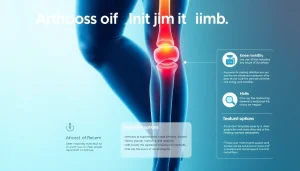What is Grief? Understanding the Process of Dealing With Grief
Defining Grief and Its Importance
Grief is a complex emotional response to loss, particularly the death of a loved one. It encompasses a range of feelings, including sadness, anger, confusion, and even guilt. Understanding grief is crucial because it is not merely a reaction to loss; it is a profound experience that reshapes our understanding of life and relationships. Grief allows individuals to honor their connections with the deceased, and through this process, they can find pathways to healing. Accepting grief as an integral part of life underscores the importance of navigating through it rather than avoiding it. In these moments, dealing with grief becomes a necessary journey, rooted in both personal meaning and universal human experience.
The Universal Experience of Loss
Loss is a universal experience that transcends geographical, cultural, and social boundaries. Everyone, at some point in their lives, will encounter grief—be it from the death of a close family member or friend, the end of a significant relationship, or even the loss of a job or a pet. Despite its universality, the experience of grief is deeply personal. Individuals process loss through their unique filters of beliefs, personality, and previous experiences. This uniqueness adds layers to how one navigates their grief, making understanding and support from others crucial in the healing process.
Common Reactions and Responses to Grief
Reactions to grief can vary widely, but some common responses include:
- Sadness: A predominant feeling, often accompanied by tears and a sense of emptiness.
- Anger: This may be directed towards oneself, the deceased, or even life circumstances.
- Denial: A common initial reaction where individuals may refuse to accept the reality of loss.
- Guilt: Feelings of guilt may arise, especially if one believes they could have done something to prevent the loss.
- Isolation: Many people retreat from social interactions as they navigate their emotions.
Understanding these reactions can equip individuals with the knowledge that they are not alone in their feelings, with many people having the same emotional experience during times of grief.
Stages of Grief: Navigating the Path of Healing
Accepting the Reality of Loss
The first step towards healing is accepting the reality of the loss. This acceptance does not mean forgetting or moving on; instead, it signifies acknowledging that life has changed and will continue to change. This stage can be difficult, as it may bring feelings of despair or hopelessness. However, coming to terms with the loss is vital in allowing space for other emotions and experiences related to grief.
Exploring the Stages: Denial, Anger, Bargaining, Depression, Acceptance
Elisabeth Kübler-Ross proposed five stages of grief: denial, anger, bargaining, depression, and acceptance. While these stages are often depicted linearly, it’s important to recognize that individuals may experience them in a different order, or even revisit stages multiple times. Here’s a brief overview:
- Denial: A defense mechanism that buffers the immediate shock of the loss.
- Anger: Frustration and helplessness may manifest as anger towards others, oneself, or even the deceased.
- Bargaining: Individuals may dwell on what could have been done differently to prevent the loss.
- Depression: Sadness, withdrawal, and feelings of emptiness may prevail at this stage, a natural response to impending change.
- Acceptance: Reaching a point of peace may not mean happiness but recognizes that life can continue alongside the loss.
Recognizing these stages can help individuals understand their experiences and communicate their feelings better to others.
Personalizing the Grief Journey
Grief does not follow a one-size-fits-all timeline; each person’s journey is unique. Factors such as cultural background, previous experiences with loss, and individual personality traits can shape how one experiences and expresses grief. For some, engaging in creative outlets like writing or art can be therapeutic, while others may prefer to seek solace in nature or spiritual practices. Personalizing the grief journey allows individuals to honor their loved ones in ways that resonate with their personal beliefs and values. This helps to create a meaningful context for their journey, aiding in the healing process.
Effective Strategies for Coping When Dealing With Grief
Healthy Ways to Process Emotions
Processing emotions healthily is crucial during grief. Here are several strategies that can help:
- Journaling: Writing down thoughts and feelings can provide clarity and an emotional outlet.
- Physical activity: Exercise can release endorphins, improving mood and reducing stress.
- Meditation and mindfulness: Engaging in mindfulness exercises can help in grounding oneself and reducing anxiety.
- Creative expression: Activities such as art, music, or gardening can provide a comforting distraction and a way to express feelings associated with grief.
Experimenting with various techniques can help individuals discover what best aids their emotional processing.
Seeking Support: The Role of Friends and Professionals
Support from friends and family: Sharing feelings with trusted individuals can foster healing. They can provide a listening ear or simply be present during moments of sorrow.
Professional help: Grief counseling or therapy can facilitate the grieving process. Therapists can offer coping strategies and a safe space for individuals to express their grief.
Communal support through grief groups can also provide a sense of belonging and understanding among those who have experienced similar losses. Connecting with others can mitigate feelings of loneliness while allowing individuals to share their journeys.
Engaging in Rituals and Memorialization
Rituals play an essential role in the grieving process. Whether it is a formal funeral, a memorial service, or personal rituals like lighting a candle or planting a tree, these ceremonies facilitate a shared expression of grief and remembrance. Engaging in meaningful acts that honor the deceased can promote healing. This may include creating a scrapbook, participating in charity work in their name, or even having a personal moment of reflection during significant dates. Such actions reinforce connections to lost loved ones while allowing individuals to embrace their memories positively.
Long-Term Impact of Grief on Mental and Physical Health
Recognizing Signs of Complicated Grief
While grief is a natural process, some may experience complicated grief, characterized by an extended duration of intense sorrow or emotional disruptions. Signs of complicated grief include:
- Persistent yearning for the deceased
- Difficulty accepting the loss
- Extreme emotional pain
- Withdrawing from social activities
- Continued feelings of anger towards the deceased
Individuals experiencing these symptoms should consider seeking help from mental health professionals who specialize in grief therapy.
Coping Mechanisms to Foster Resilience
Building resilience in the face of grief can empower individuals in their healing journey. Key coping mechanisms include:
- Self-care: Prioritizing sleep, nutrition, and physical activity can fortify emotional health.
- Renewing interests: Engaging in hobbies or activities that bring joy can serve as a welcome distraction.
- Setting goals: Small, achievable goals can induce positive feelings of accomplishment, reinforcing a sense of control.
Encouraging oneself to gradually re-engage with life is the cornerstone of building resilience while coping with loss.
Integrating Grief into Daily Life
As individuals slowly navigate their grief journey, integrating the experience into daily life becomes a crucial task. This does not mean forgetting the loss; rather, it involves learning how to carry the memories and lessons of the loss forward.
Finding new routines or traditions that honor loved ones can allow grief to coexist alongside everyday life. This could range from weekly rituals to remembering the departed during family gatherings to reflecting on life’s fleeting moments, acknowledging that grief and joy can coexist.
Resources and Support Networks for Dealing With Grief
Finding Community Support and Grief Groups
Grief support groups can be invaluable, offering a safe space for individuals to express their feelings without judgment. Various organizations, both local and online, provide grief support, including:
- Hospice centers
- Community health organizations
- Online forums and services
Researching these resources can help individuals find groups that resonate with their needs, enhancing their support network.
Professional Help: When to Seek Therapy
It is essential to recognize when ordinary grief transitions into a cry for help. If feelings of despair persist for an extended period or interfere with daily functioning, enlisting the help of a therapist can be beneficial. Professional counseling can provide tailored support to address unique grief experiences, ensuring a more navigable path towards healing.
Online Resources and Educational Material
Many online platforms offer resources, information, and forums dedicated to grief and loss. Websites such as the National Institute on Aging, HelpGuide, and organizations like SAMHSA provide valuable insights that explore the various aspects of grief, including coping strategies, emotional responses, and community support. These resources can serve as educational tools to help individuals better understand their grief journey.








